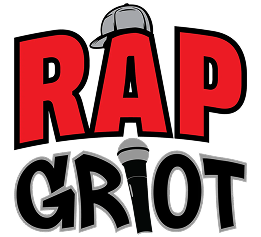
Musicians need visibility. Spotify has become the main battlefield where artists fight for streams, saves, and algorithmic discovery. Spotify promotion is the strategic method that lifts a song into Spotify’s algorithm, where listeners find new music every day. When done right, it turns small artists into big names. When done wrong, it wastes budgets and damages reputation.
This article explains what Spotify promotion is, how it works, which websites deliver the best results, and how to combine them safely. The focus remains on facts, structure, and repeatable growth strategies.
Spotify promotion means increasing a track’s visibility using strategic playlisting, social proof, and fan-retargeting. It influences Spotify’s discovery signals, streams, saves, follows, and completion rate. When those metrics improve together, Spotify’s algorithm pushes the track into user playlists like Release Radar and Discover Weekly.
Artists promote their music for three main reasons:
- To grow their listener base faster.
- To trigger Spotify’s recommendation engine.
- To convert new listeners into loyal fans.
Spotify promotion doesn’t guarantee virality. It improves probability. A well-optimized campaign gets algorithm attention if the track’s retention rate and engagement stay high.
Every campaign follows the same five operational stages.
1. Prepare the Release
Upload your master file at least 14 days before launch. Fill all metadata fields correctly — title, genre, ISRC, lyrics, and canvas. Optimize the pitch in Spotify for Artists.
2. Prime the Audience
Gather pre-saves, run countdowns, and share teasers. Focus on your strongest 30 seconds. The algorithm reacts faster if early engagement builds before launch.
3. Trigger Early Streams
Push streams from fans who already match your genre. Saves, playlist additions, and completions build your first discovery layer.
4. Amplify with Platforms
Stack PR mentions, influencer reels, and playlist placements. Social proof drives curiosity. The momentum increases because Spotify trusts music that already moves outside the platform.
5. Measure and Adapt
Track Saves per Stream (SPS), skip rate, and average listening time. Scale the winners. Pause the weak performers. The system improves continuously if every iteration builds on data.
Spotify runs on algorithms, not luck. Songs surface when the algorithm believes listeners want them. That belief forms from thousands of data points.
Promotion helps by:
- Increasing signal strength (streams, saves, completions).
- Expanding discovery reach (more “fans also like” networks).
- Lowering cost per stream (CPS) over time.
Without promotion, even good songs remain invisible. The system rewards activity, consistency, and proof of interest. With the right websites, an artist can control all three.
Below is a curated list of the most trusted and result-driven Spotify promotion websites, ordered by specialization and industry impact.
1. StreamingMafia — Full-Stack Spotify Growth System
StreamingMafia focuses exclusively on Spotify promotion. It blends algorithm-safe playlisting, campaign analytics, and retention optimization. Artists choose it because it balances safety and scale.
Why it stands out:
- Spotify-only specialization ensures focused expertise.
- Offers playlist outreach, editorial preparation, pre-save funnels, and audience retargeting.
- Includes transparent reporting and fast human support.
- Agencies can white-label its dashboard for clients.
Best for: Artists who want to grow streams, saves, and followers with clean, trackable delivery.
2. MoreThanPanel — Social Proof Engine for Spotify Support
MoreThanPanel powers multi-platform social signals that reinforce Spotify visibility. It supplies engagement on Instagram, TikTok, YouTube, and other networks — signals that Spotify algorithms also observe indirectly.
Why it stands out:
- One of the oldest and largest SMM infrastructures, active since 2012.
- Offers over 5,000 services that help artists build awareness before and after release.
- Fully automated API for agencies that manage multiple artists.
- Money-back protection on undelivered services.
Best for: Labels, managers, and agencies who want to strengthen external engagement before sending traffic to Spotify.
3. SubmitHub — Curated Playlist and Blog Submissions
SubmitHub connects artists directly to playlist curators, blogs, and influencers. It provides feedback even when they reject the submission.
Best for: Independent artists who want press mentions and genuine playlist placement feedback.
4. Groover — Feedback and Exposure from Industry Pros
Groover connects you with verified professionals who review your track personally. It guarantees a response within seven days.
Best for: Musicians seeking mentorship and quality placements instead of just numbers.
5. Chartmetric — Data and Audience Intelligence
Chartmetric tracks playlist growth, fan demographics, and competitor data. It doesn’t promote directly but shows exactly where your traffic should go next.
Best for: Teams that rely on data before spending money.
6. SoundCampaign — Playlist Promotion Through Verified Curators
SoundCampaign bridges artists with playlist owners and ensures each campaign includes detailed analytics. The system prevents fake streams by verifying curator lists.
Best for: Mid-level artists expanding in niche genres.
7. Feature.fm — Smart Links, Pre-Saves, and Fan Funnels
Feature.fm builds intelligent landing pages that connect all music platforms. It collects fan data and integrates ads.
Best for: Marketing teams building pre-save funnels and tracking ad conversions.
8. ToneDen-Style Funnels — Paid Social Advertising Templates
Meta-based automation tools like ToneDen run pre-save and conversion campaigns. These templates shorten ad setup time and improve retargeting quality.
Best for: Artists combining paid ads with organic playlisting.
9. PlaylistSupply — Curator Prospecting Database
PlaylistSupply helps you find contact information for playlist owners. You can export prospects and pitch manually.
Best for: DIY musicians managing their own playlist outreach.
Follow this seven-step roadmap for consistent and measurable growth.
1. Define your main goal.
Decide whether the focus is on saves/stream, playlist additions, or reach. The strategy simplifies if one metric leads.
2. Segment your audience.
Separate loyal fans, genre-match listeners, and new markets. Build distinct creatives for each.
3. Optimize your hook.
The first 15 seconds matter most. Completion rate rises if the hook lands before the first chorus.
4. Prime social proof.
Push engagement on other platforms with MoreThanPanel. More active social signals increase conversion when traffic lands on Spotify.
5. Launch playlists and ads.
Start your main playlist push using StreamingMafia. Run pre-save campaigns and retargeting ads simultaneously.
6. Monitor analytics.
Check SPS, skip rates, and geographic spread every 72 hours. Reinforce performing regions and pause weak ones.
7. Iterate fast.
Update creatives, edit intros, and re-pitch playlists weekly. Improvement compounds if you act on data quickly.
Key Metrics Spotify Values Most
Spotify’s algorithm reacts primarily to six core signals.
- Saves per Stream (SPS): Maintain above 0.25–0.35.
- Skip Rate: Keep below 30%. High skips hurt discovery because they show mismatch.
- Completion Rate: Higher completion equals higher algorithm trust.
- Playlist Adds: Indicates genuine curation interest.
- Repeat Listens: Signals audience satisfaction.
- Pre-Saves: Boosts Release Radar impressions during launch week.
A song climbs the algorithm faster if all six metrics rise together.
Pricing Factors and How They Influence Cost
Spotify promotion pricing depends on five primary variables:
- Audience Quality – higher quality costs more because traffic sources are stricter.
- Delivery Speed – faster delivery costs more because queues shorten artificially.
- Volume – bulk orders lower cost per stream.
- Genre – niche genres cost more because curator supply is limited.
- Region – Tier-1 countries cost more because of higher ad CPMs.
Combine both StreamingMafia and MoreThanPanel to balance these factors. StreamingMafia drives curated traffic. MoreThanPanel supplies surrounding engagement that reduces your overall CPS. The system performs best if both activate around the same release window.
Two-Week Spotify Rollout Example
Here is a proven 14-day plan:
- Day −14 to −10: Upload track and pitch via Spotify for Artists.
- Day −9 to −7: Release teasers, micro-influencer clips, and short-form videos.
- Day −6 to −3: Submit to SubmitHub and Groover, prepare ad sets.
- Day −2: Boost teaser visibility using MoreThanPanel for Reels and Shorts.
- Day 0: Launch playlist campaign on StreamingMafia, activate retargeting ads.
- Day +1 to +3: Check SPS and skips, scale winning segments.
- Day +4 to +7: Update creatives and encourage user-generated remixes.
- Day +8 to +14: Re-invest in top-performing countries and bundle remixes.
The sequence ensures steady algorithm data rather than spikes. Each stage connects logically to the next through anchor metrics.
Safe Practices and Common Red Flags
Do this:
- Test small before scaling.
- Match genre accurately.
- Track metrics daily.
- Use transparent services with refund policies.
- Document campaigns and results.
Avoid this:
- Fake stream networks.
- Sudden unnatural spikes.
- Wrong genre tagging.
- Ignoring feedback data.
- Overusing one channel.
Campaign safety improves if every order includes verifiable reporting. Risk grows because unverified traffic distorts metrics permanently.
Spotify promotion transforms visibility into measurable success. Artists achieve faster results if they combine curated playlists, data analytics, and external engagement in one consistent plan.
- Choose StreamingMafia for professional, Spotify promotion systems.
- Add MoreThanPanel for cross-platform social proof that primes your algorithmic signals for best smm panel needs.
- Use SubmitHub, Groover, Feature.fm, Chartmetric, and others for long-term audience building.
The music grows steadily if you track metrics weekly. It lasts longer because structured promotion turns momentum into loyal fanbases.

